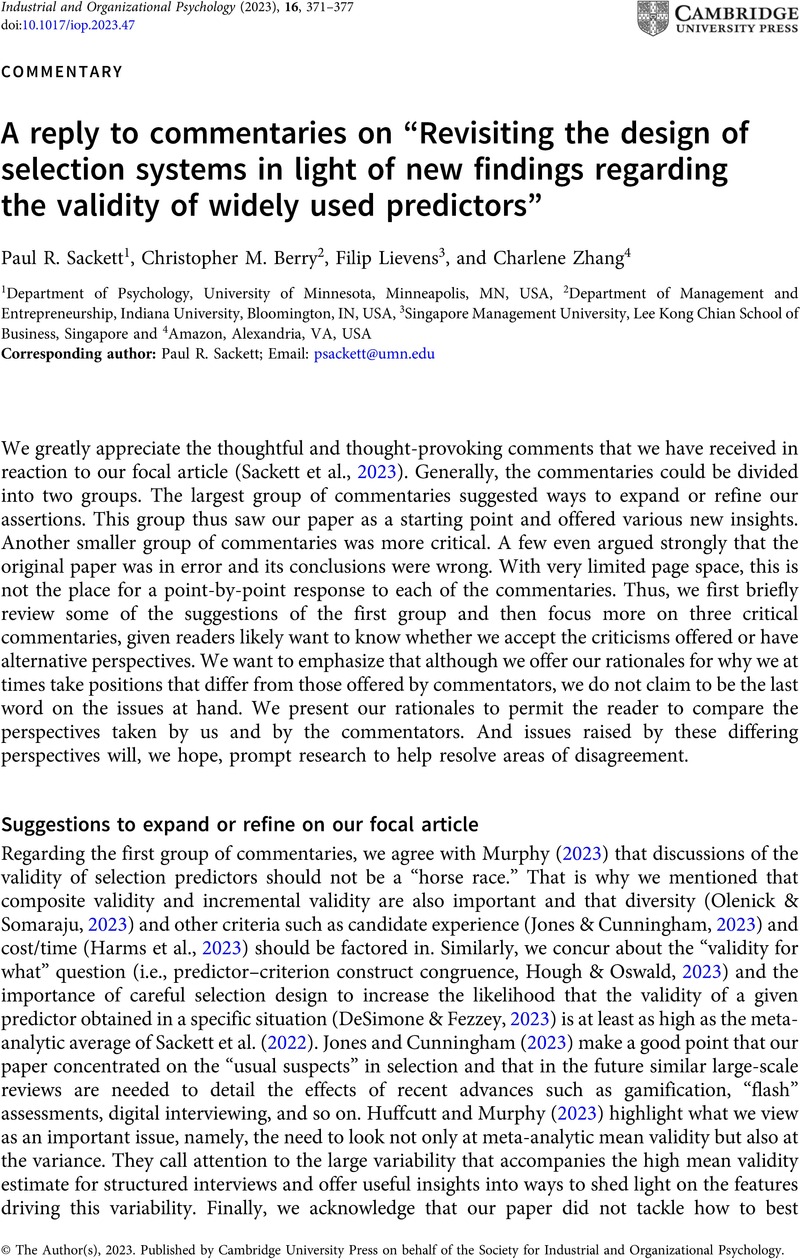Crossref Citations
This article has been cited by the following publications. This list is generated based on data provided by Crossref.
Cucina, Jeffrey M.
Burtnick, Scott K.
De la Flor Musso, Maria E.
Walmsley, Philip T.
and
Wilson, Kimberly J.
2024.
Meta-analytic validity of cognitive ability for hands-on military job proficiency.
Intelligence,
Vol. 104,
Issue. ,
p.
101818.
Cucina, Jeffrey M.
2025.
Reconsidering the search for alternatives to general mental ability tests.
Intelligence,
Vol. 109,
Issue. ,
p.
101892.



